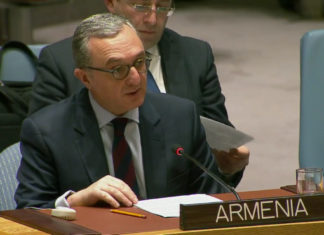By Edmond Y. Azadian
Iran’s nuclear program that was in process to develop that country’s first bomb had created an explosive situation throughout the Middle East and in many ways it impacted relations in the region. The standoff between Iran and Israel defined not only regional politics but also international relations. Iran’s bombastic leaders in the past only provided ammunition to Israel’s maximalists to justify a pre-emptive strike and draw reluctant leadership in Washington into the ensuing conflict.
Two years of intense negotiations between the Big Six (US, Russia, China, Germany, France and Britain) and Iran finally yielded some positive results, in Lausanne, Switzerland. Iran agreed to scale back its nuclear program for five to 10 years and accept intrusive international inspections. In return, the US and the international community promised to lift the sanctions which have crippled Iran’s economy.
With the prospects of a better life, there is elation in Tehran’s streets, but Iranian hardliners as well as President Obama’s domestic opponents, not to say anything about Israel’s Prime Minister Benjamin Netanyahu, all oppose the deal.
Under the accord, which will be finalized before June 30, Iran has agreed to reduce the number of operating centrifuges by two-thirds, to 5,600 and to cut its current stockpile of low-enriched uranium from 10,000 kilograms to 300, for 15 years.
While President Obama hailed the agreement as “once-in-a-lifetime opportunity” to curb the spread of nuclear weapons in a dangerous region, Israel’s premier responded that “not a single centrifuge is destroyed” in his state of the union speech, “not a single nuclear facility is shut down, including the underground facilities that they have built illicitly. Thousands of centrifuges will keep spinning, enriching uranium. That is a very bad deal.”










